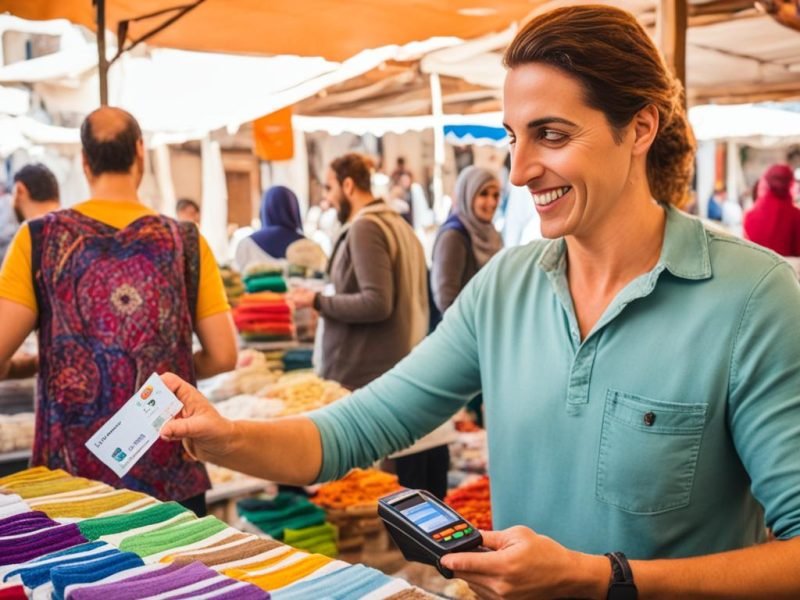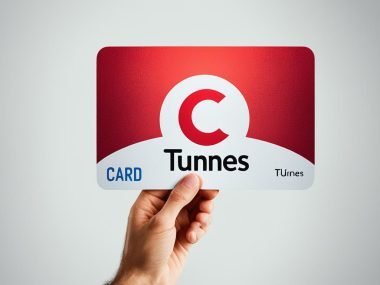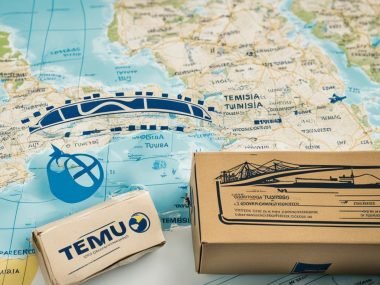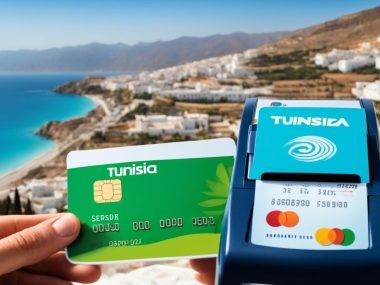Over 90% of tourists visiting Tunisia primarily rely on cash for their expenditures—a staggering figure indicative of the country’s monetary customs. For savvy travelers, the question arises: is Mastercard accepted in Tunisia? Answering this question is crucial, as it unveils the practicalities of using Mastercard in Tunisia, ensuring that you are well-prepared for your North African journey.
Your experience with Mastercard Tunisia might differ significantly from what you’re accustomed to at home. While many tourist-centric establishments readily accept Mastercard, you may encounter establishments that do not, prompting the need for a comprehensive understanding of local payment practices. This introduction will help demystify the financial landscape of Tunisia and prepare you for a comfortable and enjoyable visit.
Key Takeaways
- Understand the extent to which Mastercard is accepted in Tunisia, especially in tourist areas.
- Get acquainted with the need for cash as the primary payment method in many transactions.
- Learn about the challenges you may face when attempting to use Mastercard in less urban locales.
- Equip yourself with knowledge on flexible payment options to avoid any monetary hassles during your trip.
- Discover practical tips on managing your finances effectively in Tunisia with Mastercard.
Understanding the Tunisian Currency Landscape
Engaging in commerce or availing services in Tunisia unveils the pivotal role of the Tunisian dinar. In this North African nation, the dinar is more than currency; it is a symbol of national economic identity. Understanding this financial underpinning is essential for any visitor, especially when it comes to the currency exchange in Tunisia. Here, we’ll explore the key elements of this monetary system and how it interplays with international currencies.
The Role of the Tunisian Dinar as Legal Tender
The Tunisian dinar stands as the unchallenged medium of exchange for all local transactions. This currency dictates the flow of daily life, driving everything from grocery purchases to the payment of hotel accommodations. By law, any fiscal transaction or settlement of accounts must be rendered exclusively in the national currency.
Limited Acceptance of Foreign Currencies in Tunisia
For travelers accustomed to the global ubiquity of their home currencies, Tunisia presents a different scenario. Hard currencies such as the Euro or U.S. Dollar might find their strength waning against the insistent exclusivity of the dinar. While slightly more relaxed in touristic locations, the general rule is clear: foreign currency is not an acceptable method of payment in most local establishments or for any legal indebtedness. It is this monetary exclusivity that lends currency exchange in Tunisia its critical importance to visitors.
Those considering the use of their Mastercard should be prepared for variations in the Mastercard exchange rate in Tunisia. The exchange rate provided by Mastercard might differ from what’s available at local banks or currency exchange outlets. Savvy travelers will first check the Mastercard rate against local options to ensure the most advantageous conversion.
| Currency Exchange Option | Exchange Rate | Convenience | Accessibility |
|---|---|---|---|
| Local Banks | Varies daily | High (during banking hours) | Widely available in urban areas |
| Exchange Bureaus | Competitive Rates | High | Common in airports and touristic centers |
| ATMs with Mastercard | Mastercard’s rate | 24/7 availability | Dispersed throughout cities |
With this knowledge at hand, your journey through Tunisia’s currency landscape will be navigated with confidence, ensuring that you maintain financial control whether trading dinars or seeking the most beneficial Mastercard exchange rate in Tunisia.
Can You Use Mastercard In Tunisia?
As you traverse the diverse landscapes of Tunisia, from bustling markets to serene coastal towns, you’ll find that Mastercard payment in Tunisia is not only possible but also quite convenient in many areas. The country’s financial infrastructure is adapting to the global shift towards cashless transactions, sufficiently accommodating tourists and business travelers alike.
Availability of ATMs and Mastercard Acceptance
Finding ATMs in Tunisia that accept Mastercard is typically straightforward, particularly in the vicinity of urban centers and tourist hotspots. Major banks like Bank of Tunisia and BIAT provide a network of ATMs that support Mastercard withdrawals, giving you the flexibility to access your funds when you need them. So whether you’re exploring the ancient ruins of Carthage or enjoying the Mediterranean flavors along the coast, rest assured that Mastercard usage will serve you well.
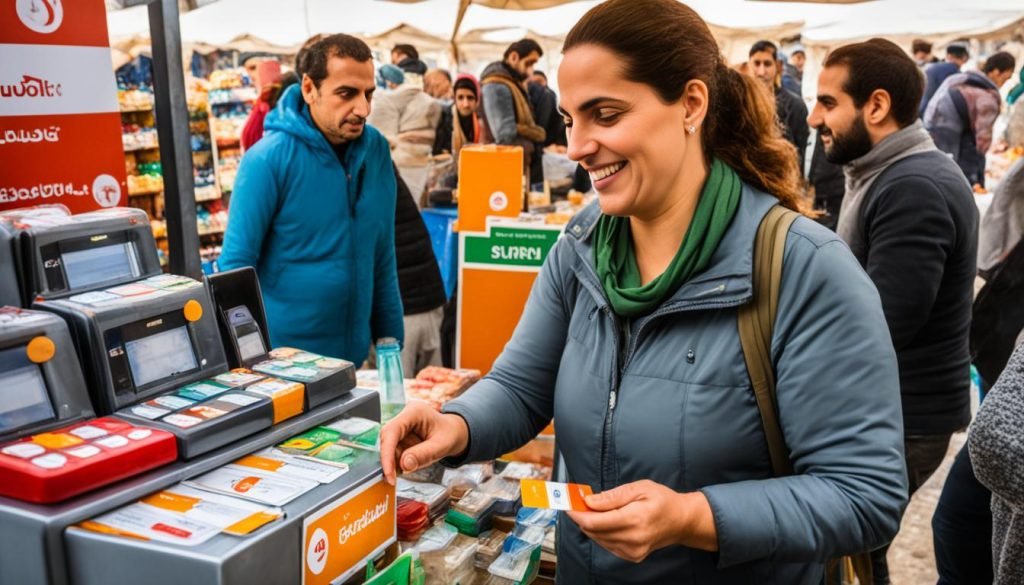
Challenges with Mastercard Transactions in Some Locations
While Mastercard usage in Tunisia is prevalent, certain challenges remain, particularly away from the well-trodden paths. Some local merchants and smaller establishments may not have the capability or choice to process Mastercard payments, often preferring cash transactions. This reality is a gentle prompt for you to be prepared with alternative payment forms, especially when visiting more remote or less tourist-centric regions.
Moreover, it’s pivotal to note the constraints placed upon the Tunisian dinar, as it’s forbidden from leaving the country’s borders. This makes it essential for you to plan your Mastercard usage in Tunisia with respect to your dinar expenditures, ensuring you utilize any remaining local currency before your departure. With a thoughtful approach to managing your finances, your visit to Tunisia can be as seamless and enjoyable as the country’s storied history and landscapes.
Alternative Payment Methods in Tunisia
When visiting Tunisia, you’ll quickly discover that understanding the local payment landscape can vastly improve your travel experience. While credit cards are a common payment method, let’s delve into other options that might suit your needs as you explore this vibrant destination.
Prevalence of Cash and Currency Exchange Services
No trip to Tunisia would be complete without experiencing the ease and convenience of cash usage in Tunisia. It’s king for day-to-day transactions, such as dining at local eateries, shopping in souks, or even paying for a taxi. To ensure you’re always prepared, you’ll find currency exchange services in Tunisia accessible, especially at airports, hotels, and banks. These services are critical in turning your foreign currency into the local Tunisian dinar, which is a necessity given the limited acceptance of foreign currencies.
Pros and Cons of Using Debit Cards and Prepaid Travel Cards
Looking beyond cash, debit cards offer a straightforward payment alternative, although they might rack up fees with regular use. In contrast, the prepaid travel card benefits in Tunisia stand out, especially when managing your travel budget. Although you can’t load them with Tunisian dinar, they’re esteemed for their financial control and security benefits. These cards often come with lower foreign transaction fees, making them an astute option for those attentive to their travel spending.
Prepaid travel cards can offer peace of mind with features like locking in exchange rates and protecting against loss or theft, which can be an advantage over carrying large amounts of cash or relying solely on a debit card.
Exploring Mastercard Fees and Exchange Rates
When planning a trip to Tunisia, understanding the financial implications of using your Mastercard is key to managing your travel budget. The lure of convenient transactions comes with a need to scrutinize the associated fees and exchange rates, ensuring that your expenditures remain controlled and within your expectations.
Understanding the Cost of Using Mastercard in Tunisia
Navigating the costs of Mastercard fees in Tunisia is an important step in financial planning. Each withdrawal or purchase may incur a fee, and these can vary based on the terms set by your bank and Mastercard’s policies. Moreover, Foreign Transaction Fees (FTFs) and currency conversion charges, also known as Dynamic Currency Conversion (DCC), can inflate the cost of each transaction significantly.
Comparing Mastercard Benefits and Exchange Rates with Other Options
Amidst the competition of various payment options, Mastercard boasts a set of benefits in Tunisia that might make it your preferred mode of payment. The Mastercard benefits in Tunisia include widespread acceptance, enhanced security features, and the convenience of contactless payments in many establishments. However, when considering the Mastercard exchange rate in Tunisia, it is beneficial to compare these rates with those offered through alternatives such as local banks, ATMs, and currency exchange services.
| Payment Method | Transaction Fee | Exchange Rate | Security Features | Convenience |
|---|---|---|---|---|
| Mastercard | Varies by bank | Competitive to local banks | High with fraud protection | High in urban areas |
| Debit Cards | Often lower than credit | Dependent on issuing bank | Typically lower than credit | Varies widely by location |
| Local Currency Exchange | May include commission | Subject to market rates | N/A | Moderate to high |
As a traveler, you’re advised to weigh these attributes carefully. Should the Mastercard exchange rate in Tunisia not favor your home currency, you may consider utilizing other monetary tools that provide superior rates or lower fees.
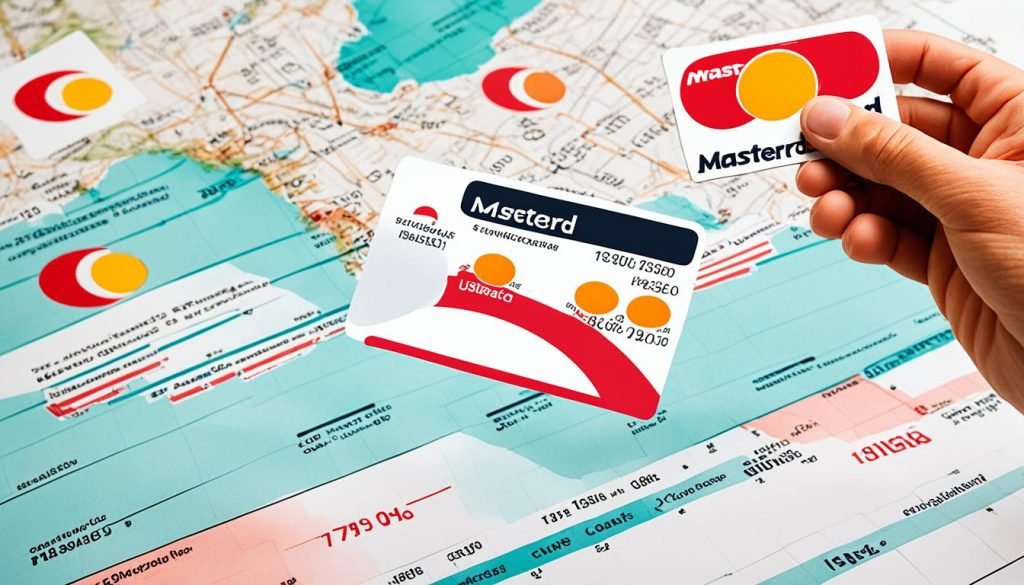
In conclusion, an informed decision on whether to use Mastercard or alternative financial tools during your visit to Tunisia will immensely affect your trip’s cost-efficiency and convenience. It’s recommended to conduct thorough research and perhaps even reach out to financial experts, or fellow travelers for firsthand experiences concerning Mastercard fees in Tunisia to optimize your financial strategy for a more enjoyable Tunisian expedition.
Travel and Money: Preparing for Your Tunisian Adventure
Embarking on a trip to Tunisia requires more than packing a suitcase and booking a flight; it involves careful financial planning. By diversifying your travel money options, you’re equipping yourself for a seamless economic experience overseas. This section will guide you through the significance of different payment methods and the necessity of planning finances with a focus on Mastercard usage in Tunisia, accommodating for the various expenses that you’ll encounter.
The Importance of Travel Money Options for Tunisia
Your choice of travel money options can greatly influence the convenience and cost of your trip to Tunisia. While Mastercard usage in Tunisia is prevalent, particularly in urban centers and tourist destinations, having multiple forms of payment ensures you’re ready for any situation. Here’s an outline of why a healthy mix, including cash, Mastercards, and prepaid travel cards, is essential:
- Pre-arranging a variety of payment methods safeguards against unforeseen circumstances where certain options may be unavailable.
- Carrying cash is particularly useful for small-scale transactions, tipping, and in remote areas where digital payments aren’t accepted.
- Mastercard is broadly welcomed at well-established venues, but having an alternative reduces reliance on any single payment method.
Planning Your Finances for a Trip to Tunisia
Forethought into planning finances for Tunisia is indispensable. A budget that reflects your travel itinerary not only helps in managing your expenses but also in avoiding common financial traps:
- Determine estimated daily expense needs from food, accommodations, transport, and entertainment.
- Know the exchange rates and plan to exchange currencies at reputable services for optimal rates.
- Keep abreast of the latest information on transaction fees for your Mastercard to manage travel money options Tunisia efficiently.
While planning, take advantage of resources to calculate the rough amount of Tunisian dinar you might need. Here’s a quick comparison to help you estimate your expenses:
| Expense Category | Estimated Cost in Tunisian Dinar | Useful Payment Method |
|---|---|---|
| Accommodation (per night) | 100-350 | Mastercard, Cash |
| Dining Out (meal per person) | 10-30 | Cash, Mastercard |
| Transportation (taxis, local) | 5-20 | Cash |
| Cultural Attractions (entry fees) | 5-15 | Mastercard, Cash |
| Souvenirs and Shopping | Variable | Cash, Mastercard |
Remember to exchange leftover dinar before your departure, as it cannot be legally exported. Keeping a close eye on your finances and using the right travel money options, like Mastercard in tandem with others, will ensure you relish every moment of your Tunisian adventure without financial worry.
Practical Tips for Using Mastercard in Tunisia
For a frictionless financial experience in Tunisia, possessing a Mastercard signifies you’re poised for utmost convenience. That being said, a few savvy moves and precautions can guarantee your travels are just as seamless as the desert winds. Below are valuable insights to ensure reliable Mastercard access in Tunisia and strategies for avoiding Mastercard pitfalls in Tunisia.
Ensuring Reliable Access to Funds with Mastercard
Paramount to a worry-free trip is the assurance that your Mastercard won’t let you down. To assert reliable access to your funds, follow these guidelines:
- Notify Your Bank: Before you set off on your Tunisian journey, make sure to inform your bank of your travel dates and destination. This proactive step can prevent your card from being suspended for presumed fraudulent activity.
- Know the ATMs: In Tunisia, not all ATMs are created equal. Locate those that display the Mastercard logo, ensuring that cash withdrawals remain unhindered.
- Check Connectivity: Familiarize yourself with areas where Mastercard connectivity could be an issue, and plan accordingly. Having cash in such cases can be a wise backup.
Avoiding Common Pitfalls with Mastercard Use in Foreign Countries
Vigilance is your ally when using Mastercard overseas. Sidestep common errors by:
- Choosing Local Currency: When making purchases or using ATMs, always opt for transactions in Tunisian dinar. This avoids steep conversion fees and ensures you get the most out of the local exchange rate.
- Staying Informed on Fees: Awareness of any potential transaction fees charged by Mastercard is essential. It allows you to budget more accurately and avoid any unpleasant surprises on your statement.
- Dual-Purpose Usage: Your Mastercard doesn’t just provide a monetary function; it also offers protection on purchases and may come with travel insurance benefits, making it an indispensable travel companion.
Embrace these insights for a fully prepared Tunisian odyssey with your Mastercard as your reliable financial partner. You’ll not only revel in the cultural riches of Tunisia but do so with the peace of mind that your finances are secure and optimized for this North African adventure.
Conclusion
Embarking on a journey to Tunisia demands a comprehensive grasp of local payment systems and the versatility of financial tools at your disposal, including Mastercard Tunisia. With a keen understanding of Mastercard usage in Tunisia, you’ll discover that it serves as a reliable companion for both ATM withdrawals and point-of-sale transactions in many touristic locales. While cash is still a primary mode of transaction in several areas, the convenience and security offered by Mastercard cannot be overlooked, particularly in more urban settings.
Moreover, your quest for a seamless travel experience is further supported by meticulous planning finances for Tunisia. This involves being proactive about exchange rates, understanding fees associated with foreign transactions, and integrating a mix of payment methods to navigate the various commercial environments you’ll encounter. Whether dining by the sea, exploring ancient ruins, or shopping in a bustling market, the right financial preparation will allow you to savor every aspect of Tunisia’s charm without monetary worries.
In summary, while Mastercard is becoming ever more convenient and accepted, it’s vital to remember that each payment method you choose plays a unique role in your travel narrative. Your financial savvy in selecting the appropriate travel money options can make the difference between a trip bogged down by complications and one that flows as pleasantly as the Mediterranean waves kissing Tunisia’s golden shores. Embrace the enchantment of this North African jewel with confidence, knowing your financial bases are covered for an unforgettable adventure.

